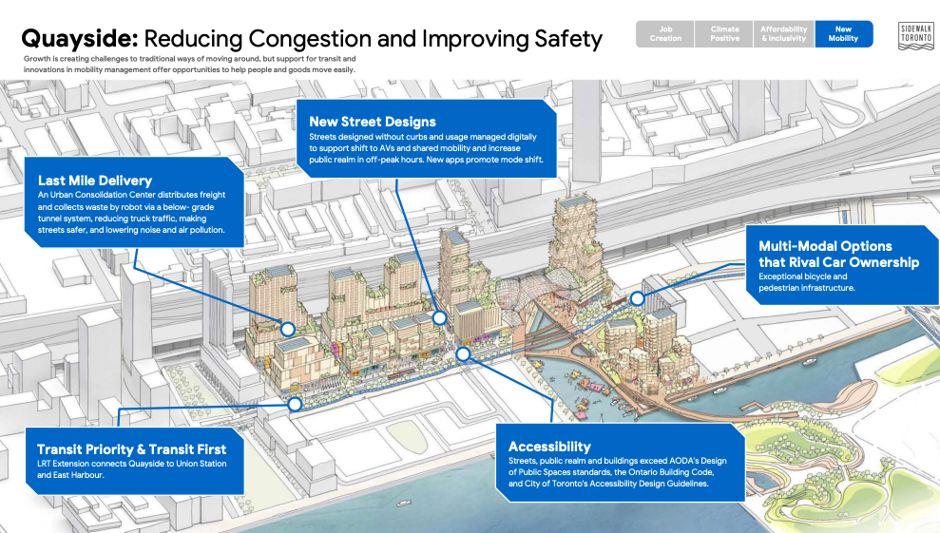
What is most exceptional about Barry Lopez is his perspective and how he manages to involve us in it.
The remarkable prologue to his new book “Horizons,” finds him in the last place we expect to find him. For an author who has brought us with him to the most remote corners on earth—the iron mines of Aboriginal Australia, the unfathomable expanses of Antarctica, an archeological site on Skraeling Island, Banda Aceh after the tsunami, Cape Foulweather’s “ghosted landscape”—Lopez is reclining on a beach chair at a Hawaiian resort, playing with his grandson in the shallow waves, swimming off shore to show him the sunken battleship Arizona, remembering an odd encounter with John Steinbeck when he too was young and thinking about writing, watching “the pool water shatter into translucent gems” after a tourist’s spontaneous, arcing dive. They’re the reveries of a summer day. And then this, as he looks out from the dreamlike circle of his life and family:
I want to wish each stranger I see in the chairs and lounges around me, every one of them, an untroubled life. I want everyone here to survive what is coming.
Until now, Barry Lopez’ most acclaimed book was “Arctic Dreams.” It is part travelogue and part meditation on the fragility and resilience of a particular landscape, along with its wildlife and people. Since it came out in 1986, he has written hundreds of articles, along with fiction and essays, but “Horizons” is “Arctic Dream’s” non-fiction companion and successor. It took him more than 30 years to recast what he had to say back then in the face of the profound impacts humanity has had on the earth in those ensuing years.
Robert MacFarlane remarked recently about the strangeness of calling what Lopez does in both of these books non-fiction, thereby defining them by “their negative and restricting relation to fiction.” Lopez breaks open the possibilities of non-fiction for me in the ways that he does for MacFarlane: with often gorgeous prose that is “stylistic adventure,” “ethical address,” and “secular spirituality” where land, wildlife and the traditional knowledge of ancient people are “tutelary presences.” Lopez is the medium that gives them voice when we can’t hear them for ourselves.
In his own writing, MacFarlane lets us feel the land, its wildlife and people too, using “the particular words” that conjure their essences and interactions most evocatively in an age when we’re losing “the language” that we once used to talk about them and therefore “the descriptions” that helped us to connect more deeply to the world around us. Out of MacFarlane’s concern about the loss of these words and memories over the same 30 years, he sees Barry Lopez’ own “life journey” as one “from hope to doubt.”
What I found most fascinating about “Horizon” are the contours of Lopez’ doubt today and how he involves us in the only outcome that seems possible given the uncertainties.
How can you warn us on our lounge chairs without disabling, through a sense of hopelessness, those you are trying so hard to engage?

1. Thirty Years Ago – 1986
The Lopez of “Arctic Dreams,” and much of what he recalls about his observations since, come from his being a fieldworker, meaning that his approach to the places he has visited are those of “attention and interpretation.” This is what MacFarlane has to say about Lopez’ well-honed conjuring tricks in his review of “Horizon”:
In one of the few even faintly comic moments in the book, Lopez recounts how the Inuit hunters refer to him as naajavaarsuk, the ivory gull, a species distinguished by its habit of “standing on the perimeter of the action, darting in to snatch something when there’s an opening”. One might add – though Lopez does not – that he is also an isumataq, a storyteller who “creates the atmosphere in which wisdom reveals itself”. The achievement of Lopez’s work has always been ontological before it is political; a “redreaming”, to use his verb, of the possibilities of human life.
Lopez always seems to have believed that if he describes what he’s experienced well enough, his readers and listeners can experience it too, trusting them to draw their own conclusions and to decide on how they’ll respond. In other words, Lopez invites a state of mind where decision-making becomes possible.
The last time I wrote about Lopez here, he talked about one way that he’s thought about it.
I gave a talk once at the Athenaeum in Providence, Rhode Island, and I asked the man who was my host, what is it that Emerson and all of these people did on a Sunday afternoon at the Athenaeum? Did they talk about politics, or did they talk about science, or did they talk about sports? What was it that made these talks so much a part of cultural memory for us? And he said they just elevated — they brought the level of the conversation up. And I reflected on that and thought, well, that’s what I want [to do].
On his own page, Lopez describes the conversation partners he’s after in unusually intimate terms: my “family, friends, mentors, professional colleagues—to whom I feel most beholden.” They are “people with whom I imagine I share a common fate.” For them, as he elaborates in “Horizon”: “You feel while you are witnessing such things that you must carry some of this home, that what you’ve found are not your things but our things.” It’s deeply personal sharing–like you’d do around a campfire–while reimagining the possibilities that are ahead of you together.
As the younger man of “Arctic Dreams,” Lopez was concerned about the environmental destruction and loss of habitat that he saw on his travels but challenged those who feared extinction was inevitable, believing that we had enough courage to reverse our course, even if our actions might not bear fruit in our lifetimes. Some of it may have been trusting too much that the conversation he had elevated would spur all those others to follow through. As he writes in “Horizon”:
Looking back, I see that this ideal—to imagine myself in service to the reader—had me balanced on the edge of self-delusion. But it was at the time my way of working. It didn’t occur to me that taking life [my role?] so seriously might cause a loss of perspective. How else, I would ask, could you take it?
The long road that Lopez took to “Horizon” involved going back to many of the places he had visited over the years to see what he had missed and to discover how the hope of “Arctic Dreams” could evolve into something sharper, with greater urgency and far less certainty.
2. Today
Lopez talked about this 30-year journey at the Free Library here on Tuesday, and during the hour and a half that he filled with his stories, I tried to track the emotions underneath them and how they have changed his role as an observer, interpreter and catalyst for those who are listening.

I didn’t think that I’d ever get the chance.
As recently as a year ago, I’d heard that Lopez was gravely ill with a particularly aggressive cancer so I never thought I’d see him read from his work or sit in the same room with him. In addition to being something of a miracle, his appearance here this week was also a statement about his own resilience, the personification of survival in the face of his body’s self-destructiveness. He never talked about his illness, but his message was more intertwined with his own survival now and you could feel it.
Lopez is a tough old bird who’s been a relentless wanderer, a describer of all the shades of purple that the light reveals in a remote canyon, a professional diver, a chronicler of “the shock wave” of the Middle East, and the pilgrim who made his Pashtun guides take him to the empty niches at Bamyan where monumental statues of the Buddha carved from the living rock 1600 years ago had been blasted into oblivion by the Taliban–why?–because their voids called out to him. Voids like this are far more fixed in his vision today than they were 30 years ago.
It’s why MacFarlane describes “Horizon” as “a deeply wounded book” about “the throttled Earth.” Lopez seems less certain that he can reach the tourists in their lounge chairs around the pool and more reliant on networks of wisdom that still includes his “family, friends, mentors and professional colleagues” but now depends at least as much on the wisdom of traditional cultures that have found ways to survive in the face of war, environmental destruction and natural disaster. Unlike citizens of the developed world who act like children looking for heroes to save them, for thousands of years adults who know how to make decisions to care for everyone and ensure that no one gets left behind have guided “heroic communities” of indigenous people across the world. Today, Lopez tries to counter his doubts by imagining networks comprised of all the different communities that depend on adults with the knowledge to survive so that we can claim our uncertain future together.
When you face your own death and the death of the world you have lovingly observed and interpreted, there is far greater urgency in your message. From MacFarlane again:
The event horizon of climate change is swiftly narrowing its noose. Lopez’s writing throughout this book is pulled taut between his need to register the extreme urgency of the environmental crisis, and his long-held belief in time, patience and the careful observation of other cultures as the basis for a fix: “As time grows short, [writes Lopez,] the necessity to listen attentively to foundational stories other than our own becomes imperative.’
At the Free Library, Lopez talked repeatedly about the centuries of practical wisdom that enable traditional societies to repair themselves, to “go on,” whatever knocks them down. Instead of our Western view of progress—the confidence that things will always get better—he counters that the health of the world is following a very different path and that our only hope rests with those who already have (or are willing to nurture) the ability to start over again, to survive, even when they find themselves in the darkest places.
As I listened I found myself wondering: when is the last time that anyone I know had to figure out a way to survive from one day to the next?
And as with MacFarlane’s lost “words” and “descriptions of nature”: how much natural resilience and willingness to rely upon one another has our freedom, wealth and belief in progress allowed us to forget, but that we’ll need to remember if we’re to adapt and survive in this increasingly “throttled” world?
There were glimmers of anger, impatience and disgust in Lopez’ uncertainty on Tuesday night, but only briefly and they quickly disappeared behind his refusal to despair. In a recent interview, Lopez acknowledged these judgmental tendencies when he talked about why it took him so long to follow up on “Arctic Dreams”:
I think I had a greater tendency when I was younger to judge, to maintain states of anger. I had impatience. And I had to bleed all that off before I wrote ‘Horizon.’
In their place, this new book and his coming out to talk about it is more like one of the prophet Jeremiah’s Old Testament lamentations. Particularly in his fifth lamentation, Jeremiah tells of how the people of God lived through the destruction of Jerusalem but in the end stubbornly refuse to abandon their hope despite a deep uncertainty about their deliverance.
Lopez sounded like an Old Testament prophet when he said of himself a couple of years ago: “It is necessary to have people out on the edge calling back to us about what’s coming.”
Like others who have cried out to be heard from the wilderness, his perspective today is forged by his own survival, his willingness to look at the voids that chronicle our race towards destruction, his urgent recognition that we have limited time to turn the tide, and his refusal to despair because so many of those he has encountered as he’s wandered this earth have also found dignified ways to survive.
Without hectoring or drama, the prophetic perspective in Lopez’ current stories invites us to re-imagine the future in ways that—quite frankly–seem impossible for us to ignore.
This post is adapted from my April 7, 2019 Newsletter. You can subscribe here and receive it in you inbox every Sunday morning










